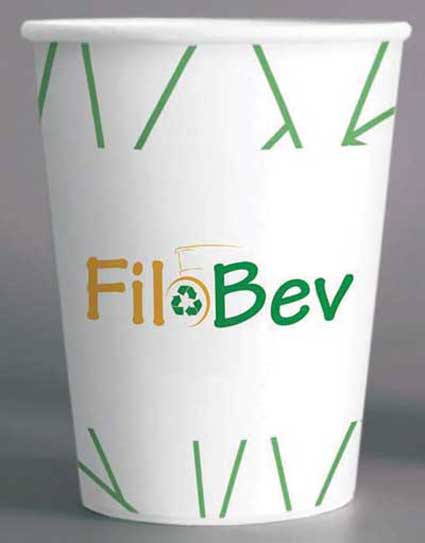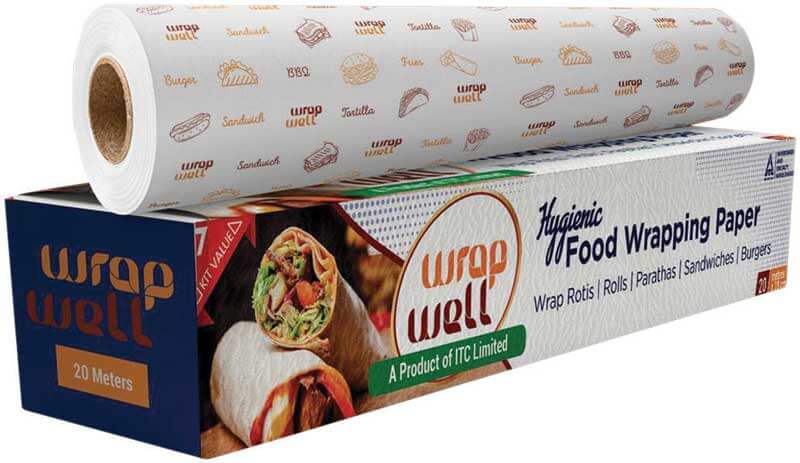“We are unique in the paper packaging and print field in the manner in which we identify a new opportunity, do a deep dive, assess the worth, assemble a team and then create prototypes and deliver a product which very often creates a new market or adds value by substitution,” says Mr. S.N. Venkataraman, Executive Vice President-Marketing & Commercial, ITC-PSPD.

ITC’s Paperboards and Specialty Papers Division (ITC-PSPD) is India’s largest, technologically advanced, and most eco-friendly paper and paperboard company. It is the leader in volume, product range, market reach, and environmental performance. With businesses catering to a wide spectrum of packaging, graphic, communication, writing, printing, and specialty paper requirements, the company is the market leader in the value-added paperboards segment. Over the years, ITC-PSPD has developed several new products and variants to meet specific industry & customer needs. This has resulted in an enriched range of products offering superior solutions to a wide cross-section of customers. Paper Mart interviewed Mr. S.N. Venkataraman, Executive Vice President-Marketing & Commercial, ITC-PSPD, to know about the recent achievements of the company with regard to product development, market growth, and application areas.
Paper Mart: Could you shed some light on the new developments at ITC-PSPD with regard to product development, market growth, and application areas?
S.N. Venkataraman: Currently, our focus is on ensuring that we retain product leadership in the domestic market, developing a host of sustainable alternatives to plastic packaging, expanding in our core business, identifying and creating new platforms for growth, which are adjacencies to our main business, and keep improving the sustainability and carbon footprint of our products.
The recent intensification in regulations by global and national agencies to minimise plastic waste, coupled with the increasing awareness among consumers about the importance of sustainability, has created a significant demand for plastic alternatives in the market. To add to that, ITC-PSPD as an organisation has always strived to ensure that our products should be manufactured in the most sustainable manner and should have the least impact on the environment.
“Trends after COVID-19 and the PLI programme of the government will lead to relocation and creation of more manufacturing capacities in India, which will give a boost to the packaging industry.”

Our team has been working diligently to cater to this increasing demand for plastic substitution products and has developed various alternatives to single-use plastics. Recently, we have launched our ‘Filo’ series of paperboards that come with a special barrier coating that gives excellent oil, grease, and water resistance for various applications in the F&B industry. The ‘Wrapwell’ series of papers is also being energised to cater to the food wrap segment. The most interesting part about this series of products is that they are 100 percent recyclable under standard recycling systems, as opposed to LDPE/BOPP-coated paperboards.
In addition, ITC-PSPD is working along with some of the leading e-commerce players in the country to help them reduce their plastic packaging consumption. For this, we have recently developed a specialty ‘Tough Pack’ paper which acts as a direct replacement to single-use plastic packaging in the e-commerce Industry.
ITC-PSPD is tapping into the larger ecosystem which is driven by changing consumer and brand packaging perceptions on consumption, health, and environment, climate change mitigation, emphasis on higher recyclability and circularity, and increasing use of digital tools and technologies to manage supply chains and logistics.
“The ‘Wrapwell’ series of paper is also being energised to cater to the food wrap segment… they are 100 percent recyclable under standard recycling systems, as opposed to LDPE/BOPP coated paperboards.”
PM: ITC-PSPD has launched anti-fungal soap packaging paper to replace single-use plastics. How is the product relevant considering its overall environmental impact?
SNV: Traditionally, beauty and toilet bar soaps having a certain moisture level have secondary packaging made up of paperboard and primary packaging made up of plastic which protects the soap from any fungal growth and prevents discolouration. In order to eliminate the need for primary plastic packaging, ITC-PSPD has developed a special paperboard with anti-fungal properties. This innovation has helped leading soap manufacturers in the country to significantly reduce plastic consumption in their packaging and meet their sustainability targets, without compromising on the product integrity.
“We have several firsts; cigarette and liquid packaging boards which even now our competitors are struggling to perfect in India, the ‘High Bright’ series of papers as showcased by our Alfa Plus and the entire portfolio of packaging boards from Cyber XLPac, Carte Lumina to our Inobarr and Indobev.”
Watch: Evolution of Paper Based Packaging
PM: How cost-effective and efficient is paper packaging as compared to single-use plastics?
SNV: If one were to view through the existing prism of cost per 1000 packs, the existing division between paper and plastic use would continue. If we were to add costs of littering, segregation, recovery, and final disposal, the picture would wing to paper in many applications. I think paper cups and disposables are excellent examples of reducing plastic usage and litter. But for the most effective fiber recovery, the recycling infrastructure should support a quick wash and transport to paper mills.
In the case of laminate structures, the paper has a low share based on limited or nil shelf-life and there is scope here for developing paper-based laminates and reducing plastic intensity. Also, the packaging machinery, which so far was used to convert plastic materials, will have to make certain modifications to adapt to paper-based materials. We are working on a few projects and will soon be able to share some developments which can reduce single-use plastics.
Beyond the pack’s lifecycle, paper is the only material that can mitigate carbon footprint and that doesn’t enter the equation presently.
For all those interested in improving the sustainable performance at a brand/SKU/pack level, I refer you to the new CII GREEN PRO which is a holistic standard developed by CII Green Centre. One can refer to the website for more details.
Looking at the recent regulations on plastic waste and inclination of state governments to ban single-use plastics, combined with growing consumer inclination to opt for more eco-friendly alternatives, the demand for plastic substitution products is going to witness an upward trend.
PM: How does the market and consumer feedback process play an important role in the R&D of such products in ITC-PSPD?
SNV: We are unique in the paper packaging and print field in the manner in which we identify a new opportunity, do a deep dive, assess the worth, assemble a team and then create prototypes and deliver a product which very often creates a new market or adds value by substitution. We were the first to integrate print and packaging professionals into our larger marketing and product development teams.
We, at ITC-PSPD, have several firsts; cigarette and liquid packaging boards which even now our competitors are struggling to perfect in India, the ‘High Bright’ series of papers as showcased by our Alfa Plus, and the entire portfolio of packaging boards from Cyber XLPac, Carte Lumina to our Inobarr and Indobev.
In the last 2-3 years, our teams have responded, even in these pandemic times, in developing and launching the ‘Filo’ series, heat-sealable papers, newer ice cream packaging, Indobowl for takeaway foods, anti-microbial/viral papers, etc.

PM: What kind of market trends do you expect in the coming months, and how do you see the packaging sector developing in the long-term?
SNV: In the near term, the industry and its customers have to navigate the challenges posed by supply-chain disruptions, escalating costs, and challenges in the availability of raw materials and other inputs.
Trends after COVID-19 and the PLI program of the government will lead to relocation and creation of more manufacturing capacities in India, which will give a boost to the packaging industry serving especially pharmaceuticals, consumer entertainment products, apparel and processed foods.
Looking at the recent regulations on plastic waste and the inclination of state governments to ban single-use plastics, combined with the growing consumer inclination to opt for more eco-friendly alternatives, the demand for plastic substitution products is going to witness an upward trend in the coming days.
We are also noticing a surge in demand for FSC-certified paper products, as this helps packaging buyers ensure that their raw materials are coming from sustainable sources.
It is likely that there will be more PE interest in the folding carton packaging business and a steady double-digit growth looks feasible.
PM: In an earlier interview with ITC-PSPD, we came to know that the company has developed antiviral paper for applications in the pharma and stationery business. How do you think it will help the pharmaceutical and education sector? When are you planning to commercialise the product?
SNV: We have already commercially launched ‘NPP Pro’ under our Protego series of products. This specialty paper has significant anti-bacterial and anti-viral efficacy. It can be used for different applications like printing pharmaceutical leaflets, packing cutlery in restaurants to avoid surface transmission, etc.
PM: Amid the drop in COVID-19 cases, schools and offices have started re-opening, how do you foresee the trend for writing & printing papers in the future ahead?
SNV: The school & college stationery and publishing markets are the main drivers for consumption. We have already started witnessing an uptick in demand for the writing & printing paper segment. The use of office papers will also increase. We expect this demand to increase significantly in the coming months, as no inventory was maintained for these products in the supply chain during COVID times, and some capacity got diverted to cup stock manufacturing.
Demand destruction has mainly occurred in the cultural segments of diaries, annual reports, and calendars, but then opportunities are opening up for grocery bags, paper straws, food packaging, and due to regulatory requirements in labelling.



